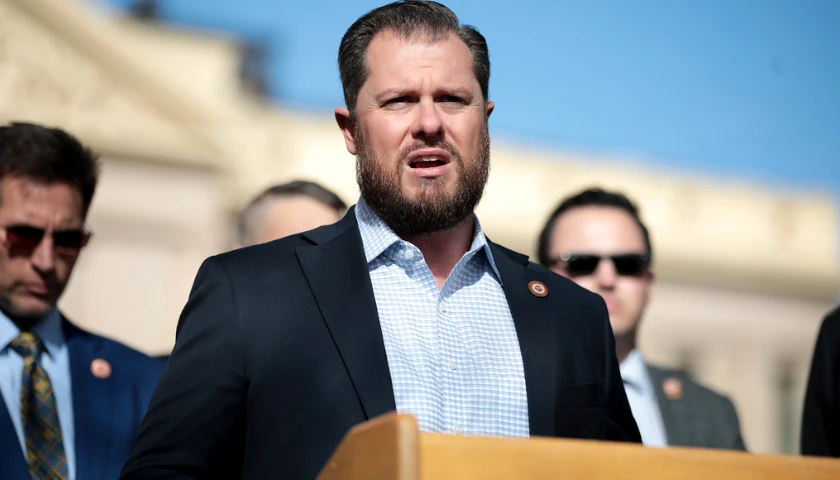by J.D. Davidson
A bill Ohio Republicans call an effort to protect law enforcement and Democrats said limits protest quickly went from committee passage to House passage on nearly a party line vote.
Sub House Bill 22 expands the state’s definition of obstruction of justice to include failure to follow a lawful order, throwing objects and inhibiting or depriving a law enforcement officer of control over a detainee.
The bill moved from the House on Friday with a 61-32 vote despite objections from the Ohio Black Caucus after its committee passage late Thursday.
“The purpose of this bill is to not infringe upon individuals’ freedom of speech and assembly, but rather to create a safe environment for our citizens and our men and women in blue while performing their daily duties and interacting with the public,” said Rep. Jeff LaRe, R-Violet Township.
Black caucus leaders said the legislation would increase division between communities and police, while creating a potential for conflict.
The bill now heads to the Senate.
Business compact: The General Assembly passed a bill that removes barriers for audiologists and speech-language pathologists to work in multiple states in person or through telehealth.
The interstate compact allows those professionals licensed in their home state to apply to be able to practice in other states, and the compact states communicate and exchange information regarding licensure and disciplinary reports.
The bill heads to Gov. Mike DeWine for signature or veto.
Name, image and likeness: Days after the Ohio House attached an amendment that would allow college athletes in the state to be compensated for their name, image and likeness, DeWine signed an executive order to move the issue forward.
Senate Bill 187 dealt solely with name, image and likeness and unanimously passed the Senate. The House attached the issue to a bill that would expand the availability of veterans IDs in Ohio, and Rep. Jena Powell, R-Aracnum, added an amendment that would require youths to compete in sports based on their sex assigned at birth.
That legislation is in a conference committee. DeWine’s order allows Ohio college athletes to join athletes from seven other states with laws allowing them to be paid for name, image and likeness.
– – –
An Ohio native, J.D. Davidson is a veteran journalist with more than 30 years of experience in newspapers in Ohio, Georgia, Alabama and Texas. He has served as a reporter, editor, managing editor and publisher. He is regional editor for The Center Square.








